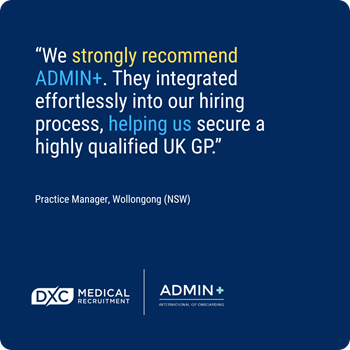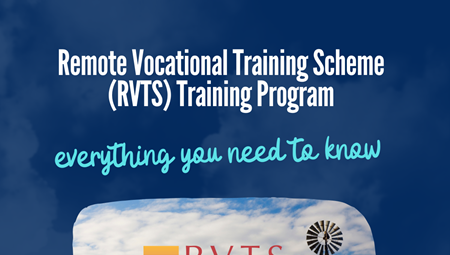International GP Recruitment
DXC Medical’s International GP Recruitment service is built on more than a decade of experience. Our dedicated team provides end-to-end support, helping International Medical Graduates (IMGs) choose the ideal location, secure a competitive package, navigate the correct medical registration pathway, obtain visa nomination, and settle into their new Australian life.
To date, we have successfully supported doctors from the UK, Ireland, Sri Lanka, South Africa, Canada, Singapore, Malaysia, Hong Kong, Germany, Pakistan, Netherlands, UAE, and Saudi Arabia, making international transitions smooth and stress-free. Read firsthand experiences of how we have supported doctors make the move to Australia through our GP Journeys.
The complexities of International GP Recruitment, for both the candidate and the practice, can be daunting, confusing, and time-consuming. This is exactly why we developed ADMIN+. Acting as your dedicated project manager, we take care of the paperwork, liaise with regulatory bodies, coordinate timelines, and keep the process moving from start to finish. The result? Less stress, reduced risk, and your new GP is ready to start sooner, allowing you to focus on delivering exceptional patient care.
If you’re a practice or candidate who needs help navigating the documentation, please don’t hesitate to contact us. You can also read more about our ADMIN+ Service here.

Why Australia?
Australia is widely regarded as one of the best countries to live in, and for good reason. With its high standard of living, quality healthcare and education systems, and a stable economy, Australia offers a lifestyle that many people around the world aspire to. Whether you’re settling down with a family, pursuing a career, or looking for a peaceful place to retire, Australia provides the perfect balance between work and leisure.
One of the country’s biggest drawcards is its natural beauty. From pristine beaches and tropical rainforests to rugged outback landscapes and world-class national parks, Australia’s environment encourages an active, outdoor lifestyle. Cities like Sydney, Melbourne, Brisbane, and Perth consistently rank among the world’s most liveable, offering a blend of modern infrastructure, cultural diversity, and easy access to nature.
Australia is also known for its inclusive, multicultural society. People from all over the world have made Australia home, creating vibrant communities with a rich mix of cultures, cuisines, and traditions. This welcoming atmosphere, along with strong protections for personal freedoms and equal rights, makes it easy for newcomers to feel at home and build a future here.
From its relaxed lifestyle to its excellent public services and global opportunities, Australia offers a safe, clean, and fulfilling environment to live, work, and thrive. Whether you're after career growth, a better quality of life, or a place to raise a family, Australia is a country where you can truly build the life you want.
Explore more here.














